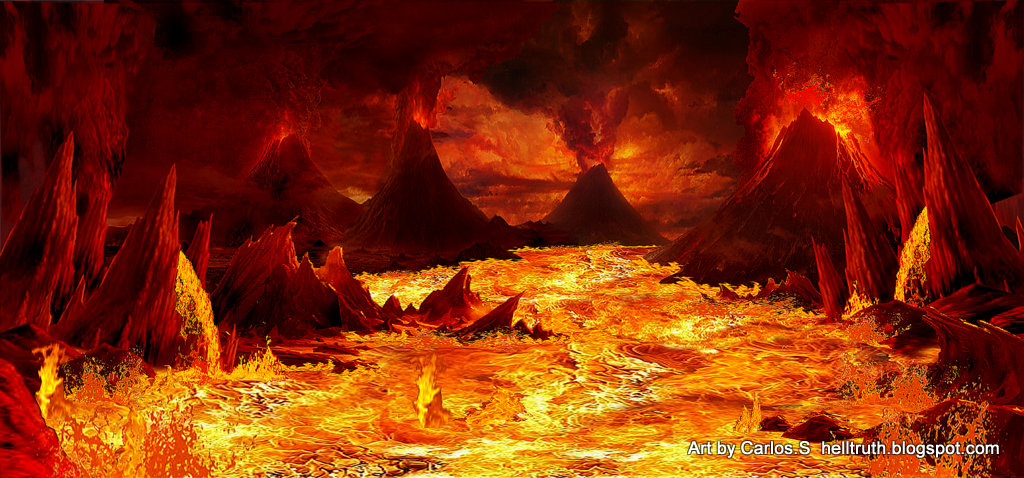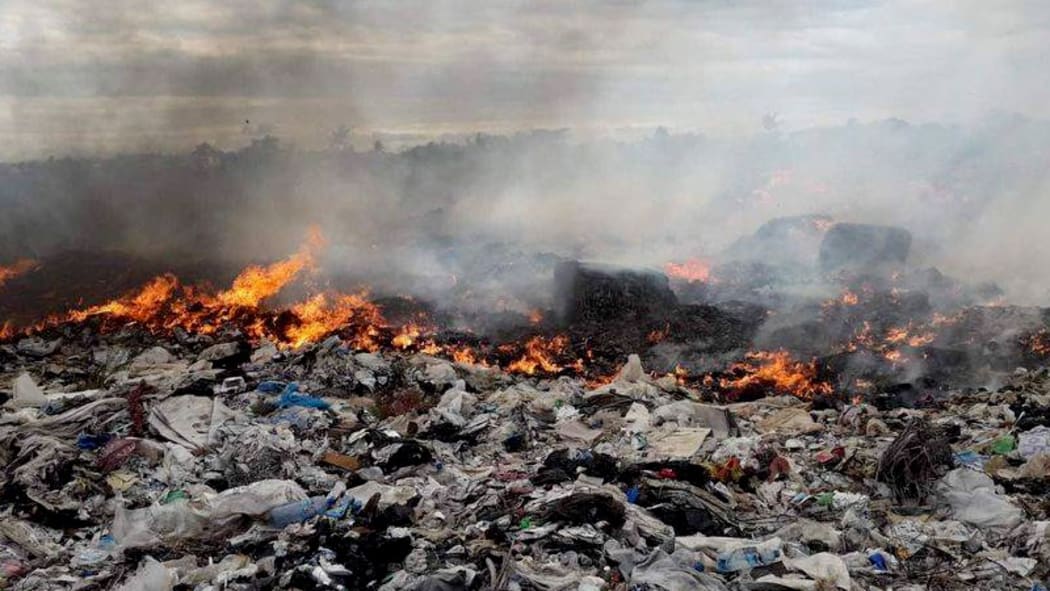
Fourth Seal with a Pale Horse
Rev 6:7.8. So I looked, and behold a pale horse. And the name of him who sat on it was Death and Hades followed him. And power was given to them over a fourth of the earth, to kill with sword, with hunger, with death, and by the beasts of the earth.

Who is the rider on this horse?
Rev 1:18 I am He who lives, and was dead, and behold I am alive forevermore, Amen. And I have the keys of Hades and Death.

The text is referring to Jesus Christ who is the Son of Man in Rev 1:13. In fact Rev 1:9-18 is referring to Christ speaking to John the disciple in vision. Christ has the keys of Hades and Death and is therefore the only one with authority to ride this pale horse.
Where shall we put the pale horse? In which time in the future?
It is interesting to note that Ellen G. White wrote in 1898 that this would be a period of time in the future. “Rev 6:8-11. Here were the scenes presented to John that were not in reality, but that which would be in a period of time in the future. (Letter 65-1898. 22)”.
Death and Hades refers to the time when Christ will send fire down from heaven, Rev 20:9 and destroy all unbelievers with the second death, totally, in the lake of fire. Rev 20:14. I refer to the second death. If anyone wants to know what happens when we die with the first death; open up the title on my website: What happens when we die? This is referring to the first death.
There is a teaching from the Roman Catholic Church and the Pentecostal Church, that suggests people who do not believe in God, or believe in God but have not made retribution for their sins, will burn in Hell eternally. We shall look at this teaching and see if it is related to Hades and Death, or even found in the whole of the Bible.

What does “hell” mean in the Bible?
There are four texts, which are used to support this teaching, that unbelievers will burn in Hell eternally.
Luke 16:19-31 This is a parable of the rich man.[1]
What is the definition of a parable? The Oxford Dictionary states that a parable is a “fictitious narrative used to point a moral or illustrate some spiritual relation or condition.” Furthermore, a parable cannot determine a doctrine from the Bible. You have to have more than six to ten texts to determine a doctrine like the Second Coming of Christ from the Bible etc.
There was a rich man and a poor man named Lazarus. The poor man was fed by the crumbs, which fell from the rich man´s table. Then came the time when both men died. The poor man was carried away to Abraham’s bosom, and the rich man was taken to a place called Hades where he was tormented with fire. The rich man complained of his situation and Abraham said to him that their lives were now reversed. The rich man asked if someone could be sent to his brothers to warn them of a place called Hades. Abraham said “If they do not hear Moses and the prophets, neither will they be persuaded through one raised from the dead. Luke 19:31.

This parable of the rich man Lazarus was used by Jesus to teach the Pharisees that being rich is not a token of Gods favor or guarantees a good place in heaven. Jesus further explains in Luke 16:1-13 that the Pharisees who represent the unjust steward, the lovers of money; that money does not guarantee a place in heaven. Luke 16:13 You cannot serve God and Mammon. In addition, there is not one text in the Bible that states that Abraham, when he died, he went to heaven. So this text is a parable.
Rev 14:9-11
If anyone worships the beast and his image, and receives his mark on his forehead or on his hand – – -. He shall be tormented with fire and brimstone in the presence of the holy angels and in the presence of the Lamb. And the smoke of their torment ascends forever and ever (αιωνας and αιωνων, aionas and aionon in the Greek language); and they have no rest day or night, and whoever receives the mark of his name. (The words forever and ever will be explained in the following word study).

Rev 20:9.10. (Refers to unbelievers after the 1,000 years millennium)
They went up on the breadth of the earth and surrounded the camp of the saints and the beloved city. And fire came down from God out of heaven and devoured them. The devil, who deceived them, was cast into the lake of fire and brimstone where the beast and the false prophet are. And they will be tormented day and night, forever and ever (αιωνας and αιωνων, aionas and aionon in the Greek language). (The words forever and ever will be explained in the following word study).
2 Thessalonians 1:7-9
When the Lord is revealed from heaven with His mighty angels, in flaming fire taking vengeance on those who do not know God, and on those who do not obey the gospel of our Lord Jesus Christ. These shall be punished with everlasting (αιωνιον, aionion in the Greek language) destruction from the presence of the Lord and from the glory of His power. (The word everlasting will be explained in the following word study).

Words from the Bible like everlasting, eternal, and forever and ever, have three different meanings.
- The first meaning: John 3:16. For God so loved the world that He gave His only begotten Son, that whoever believes in Him should not perish but have everlasting (αιωνιον, aionion in the Greek language) life.
This everlasting life has a start but no ending. We can believe in Jesus Christ now, today and then we have eternal life which has no ending which is called infinity. Start → No ending.
- The second meaning: Jude 7. As Sodom and Gomorrah, and the cities around them in a similar manner to these, having given themselves over to sexual immorality and gone after strange flesh, are set forth as an example, suffering the vengeance of eternal (αιωνιου, aioniou in the Greek language) fire.

This eternal fire, which fell over Sodom and Gomorrah, had a start and an ending. Archaeologists say they have found the ashes of these cities Sodom and Gomorrah. This would mean that these cities were on fire for about 14 days and then they were burnt to ashes. In Malachi 4:1.3. it says for behold the day is coming, burning like an oven, and all the proud, yes, all who do wickedly will be stubble. And the day which is coming shall burn them up. – – – You shall trample the wicked, for they shall be ashes under your feet. The word eternal in this context means it has a start and a short period of fire, reduced to ashes, and resulting in a finish. Eternal fire means total destruction in this text.
Start → Short period of time ←Ending.
- The third meaning: Psalm 90:2. Even from everlasting to everlasting (αιωνος, αιωνος, aionos in the LXX Greek Bible) You are God.
The words everlasting to everlasting has no beginning and no ending and means God is from infinity to infinity. ← No start/No ending →
When we look at the words everlasting or eternal in reference to fire, smoke, punishment and destruction from God, it refers to a short period of time only, and not many years. The words mean total destruction.
We shall now do a selected short word study in the Bible on fire from God.
Genesis 19:24 Then the Lord rained brimstone and fire on Sodom and Gomorrah, from the Lord out of the heavens. (This fire is not burning now. It lasted for about 14 days. The ashes of these cities have been found upon these plains. This fire means total destruction).
Luke 17:29 but on that day that Lot went out of Sodom it rained fire and brimstone from heaven and destroyed them all.
Leviticus 9:24 Fire came out from before the Lord and consumed the burnt offering and the fat on the altar. (This fire consumed the burnt offering in a short time).
Leviticus 10:1.2. Then Nadab and Abihu, the sons of Aaron, each took his censer and put fire before the Lord, which He had not commanded them. So fire went out from the Lord and devoured them, and they died before the Lord. (When fire came from the Lord, these two brothers died instantly).
Numbers 11:1.2. Now when the people complained, it displeased the Lord; for the Lord heard it, and His anger was aroused. So the fire of the Lord burned among them, and consumed some in the outskirts of the camp. Then the people cried out to Moses, and when Moses prayed to the Lord, the fire quenched. (This fire from the Lord was a short period of time).
Numbers 16:35 And a fire came out from the Lord and consumed the two hundred and fifty men who were offering incense. (These men Dathan and Abiram were the head of priestly families in Israel. They and others rebelled against Moses and God. This fire from God lasted only a few seconds and consumed the men).
1 Kings 18:38 Then the fire of the Lord fell and consumed the burnt sacrifice, and the wood and the stones and the dust, and it licked up the water that was in the trench. (This is Elijah the prophet on Mount Carmel. He built an altar, put a sacrifice on it, poured water on it, and the Lord consumed the sacrifice, the stone altar and water in a few seconds).
2 Kings 1:10 (The king of Samaria sent fifty soldiers to take Elijah captive). So Elijah answered and said to the captain of fifty, “If I am a man of God, then let fire come down from heaven and consume you and your fifty men.” And fire came down from heaven and consumed him and his fifty men. (This fire lasted only a few seconds to consume the fifty men).
2 Chronicles 7:1 When Solomon had finished praying, fire came down from heaven and consumed the burnt offering and the sacrifices, and the glory of the Lord filled the temple. (This fire consumed the offering within a few seconds).
Psalm 11:6 Upon the wicked He will rain coals; fire and brimstone and burning wind. (This fire will be a short period of time like that in Sodom and Gomorrah).
Matthew 3:12 His winnowing fan is in His hand, and He will thoroughly clean out His threshing floor, and gather His wheat into the barn; but He will burn up the chaff with unquenchable fire. (Unquenchable fire means that the fire does not stop burning until all is consumed and destroyed, which would be a short time for God).
Matthew 13:49.50. The angels will come forth, separate the wicked from among the just, and cast them into the furnace of fire. There will be wailing and gnashing of teeth. (This is referring to the final consummation of the wicked, when fire comes down from God. Rev 20:9. This refers to a short period of time).
Matthew 18:8 It is better for you to enter into life lame and maimed, rather than having two hands or two feet, to be cast into everlasting fire. This fire would refer to a short period of time).
Matthew 25:41 He will say to those on the left hand, “Depart from Me, you cursed, into the everlasting fire prepared for the devil and his angels.” (This fire is the same fire poured out from God in Rev 20:9 and will be for a short period of time).
2 Thessalonians 1:7.8. When the Lord is revealed from heaven with His mighty angels, in flaming fire taking vengeance on those who do not know God, and on those who do not obey the gospel of our Lord Jesus Christ. (This is the fire from God in Rev 20:9 and is a short period of time).
2 Peter 3:7 But the heavens and the earth which are now preserved by the same word, are reserved for the fire until the day of the judgment and perdition of ungodly men. (This is the fire from God in Rev 20:9 and is a short period of time).
Rev 19:20 Then the beast was captured, and with him the false prophet who worked signs in his presence, by which he deceived those who received the mark of the beast and those who worshipped his image. These two were cast alive into the lake of fire burning with brimstone. (This is the fire from God in Rev 20:9 and is a short period of time).
Rev 20:9 And fire came down from God out of heaven and devoured them. (This fire devoured all unbelievers after the 1,000 years of judgment. This is the fire from God in Rev 20:9 and is a short period of time).

Rev 20:10 The devil, who deceived them, was cast into the lake of fire. (This is the fire from God in Rev 20:9 and is a short period of time).
Rev 20:14 Then Death and Hades were cast into the lake of fire. This is the second death. (This is the fire from God in Rev 20:9 and is a short period of time. It means that death is totally extinct, and does not exist anymore. It is destroyed completely in the this fire).
Rev 20:15 And anyone not found written in the Book of Life was cast into the lake of fire. (This is the fire from God in Rev 20:9 and is a short period of time).
Conclusion
Nowhere in the Bible is fire from God related to a place called Hell which burns people for a long period of time.
The fire from God is related to: total destruction, consummation, devoured, unquenchable furnace, everlasting, flaming fire, judgment, the beast, the false prophet, those who worshipped his (the beasts) image, lake of fire, the devil, Death and Hades, anyone not found written in the Book of Life).
Explanation of the word Hell in the Bible
The word “Hell” is written 52 times in the Old and New Testament Bible. 31 times it is referred to the Hebrew word “Sheol”. 10 times it is referred to the Greek word “Hades”. 11 times it is referred to the Greek word “Gehenna”. One time it is referred to the Greek word “Tartarus”.
Not one of these words refer to a burning fire for a long period of time, a place were people are persecuted for their sins in purgatory.
Examples of the Hebrew and Greek words used in the Bible:
Deuteronomy 32:22 For fire is kindled in My anger, and shall burn to the lowest hell (Sheol); it shall consume the earth with her increase, and set on fire the foundations of the mountains. (This hell is “Sheol” in the Hebrew and refers to the end of time Rev 20:9 when God shall consume the whole of the earth with fire).
Matthew 11:23 And you Capernaum, who are exalted to heaven, will be brought down to Hell (Hades), for if the mighty works which were done in you had been done in Sodom, it would have remained until this day. (This is referring to the day of judgment, verse 24 at the end of time Rev 20:9 when fire will consume the whole of the earth).
Mark 9:47 And if your eye causes you to sin, pluck it out. It is better for you to enter the kingdom of God with one eye, rather than have two eyes, to be cast into hell (Gehenna) fire. (This fire is referring to the end of time Rev 20:9, but also has a parallel with the fire burning in the valley of Hinnom).
“Gehenna is the Grecized form of Gi Hinnom, Valley of Hinnom, a gorge near Jerusalem repeatedly mentioned in the Old Testament (Joshua 15;8. 2 Kings 23:10, 2 Chronicles 33:6, Jerimiah 7:31). Here the barbaric heathen rite of burning children to Molech was conducted. (2 Chronicles 28:3, 33:1-6.). Jeremiah predicted that because of this sin, the Lord would make the valley of the sin of Hinnom a ´Valley of slaughter´ where the corpses of the Israelites would be buried until there was no more place for them, and the remaining dead bodies would be food for the fowls of heaven. (Jeremiah 7:32.33). This doubtless led to the valley being regarded as a place of judgment of the wicked. Later, rabbinical tradition claims that the Valley of Hinnom was also a place outside the city for burning carcasses and rubbish.

These references to a final punishment of sinners by fire of Hell are further clarified in such texts as Matthew 3:12, where sinners are likened to chaff that is burned with unquenchable fire. (Mark 9:43-48. Luke 3:9).”[2]
2 Peter 2:4 For God did not spare the angels who sinned, but cast them down to hell (Tartarus) and delivered them into chains of darkness to be reserved for judgment. (One third of the angels of heaven sinned against God in heaven. Rev 12:4 Stars in prophecy represent angels. The dragon represents Satan Rev 12:9. These were cast down to earth and await the Day of Judgment for 1,000 years Rev 20:1-3. Then they will be cast into the lake of fire and be consumed Rev 20:9.10.)
Conclusion
Not one of these references to Hell refer to a burning fire for a long period of time, a place were people are persecuted for their sins.
[1] George Arthur Butterick, Ed., The Interpreter´s Dictionary Of The Bible: (Nashville: Abingdon Press, 1982), Dead, 788.
[2] Seigfreid H. Horn, Seventh-Day Adventist Bible Dictionary (Washington D. C.: Review & Herald, 1979), 474. 475.